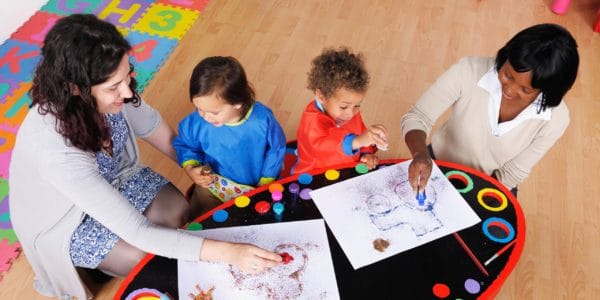A new report by the National Centre for Social Research (NatCen), produced in collaboration with the Education Policy Institute (EPI) and funded by the Nuffield Foundation, reveals a fresh picture of the early years workforce and the challenges for recruiting, retaining and developing staff in the sector.
While demand for childcare in England remains high, the sector is struggling to recruit and retain staff. The number of nursery workers qualified to Level 3 has plummeted in recent years, from 83% of staff in 2015 to just 52% in 2019.
Through detailed interviews with nursery staff, managers and childminders, the new study uncovers what first attracted people to working with our youngest children, and what factors led them to consider leaving the sector.
The study found many staff pursued a career in the sector because of a love for early years education. Others had entered childcare for pragmatic reasons, but now remain because of a passion for their work, or out of convenience.
Whatever path they followed into the profession, the challenges that forced staff to consider leaving the early years were the same across the workforce:
- Poor pay progression and low salaries, which were felt to be incompatible with increasing workload and responsibilities.
- The job’s emotional and physical demands, made worse by increasing paperwork and demands from parents and employers.
- Difficulties supporting a family on current salaries, which stopped many from seeing working in the early years as a long-term career option.
- The lack of social recognition afforded to early years education, which staff felt society wrongly viewed as being “easy”.
To address the profession’s undervalued status, the report suggests a need for better communication about the critical role staff play in addressing inequalities. Recommendations for improving worker pay are also proposed, including matching early years pay with that of primary teachers.
The report also calls for the government to consider a review of current training qualifications, to ensure staff are equipped with key skills for the job. To boost progression and professionalisation, the report suggests an equivalency between Early Years Teaching Status and Qualified Teaching Status, alongside ring-fencing of funds for training and professional development.
NatCen’s Director for Children and Families, Ellen Broomé said: “Too often, the views of the people who work in the sector, and what they think would help deliver high quality early years education, have not been heard. This study paves the way for the people who work with our youngest children to be part of the conversation.”
Dr Sara Bonetti, Director of Early Years at the Education Policy Institute, collaborator on the report, said: “This new research provides further evidence of a low-paid and undervalued early years workforce. If the government is serious about levelling up outcomes in education, it needs to look closely at how it supports those working with children at this crucial stage in their lives.”
Eleanor Ireland, Education Programme Head at the Nuffield Foundation said: “This research shows that early years professionals are struggling with poor pay, limited progression opportunities, very demanding work and a lack of social recognition for the importance of their role. If we want to improve the quality of early years education for very young children, it is vital that the government supports the workforce in retaining high quality staff and improves how we value the early years sector”.



















































